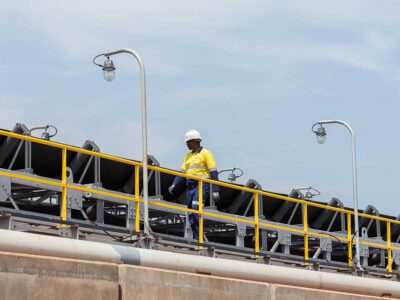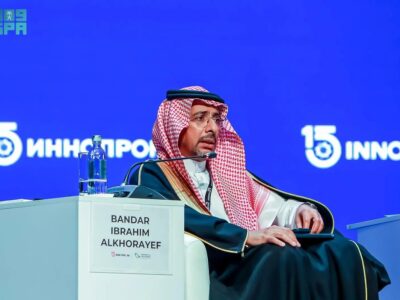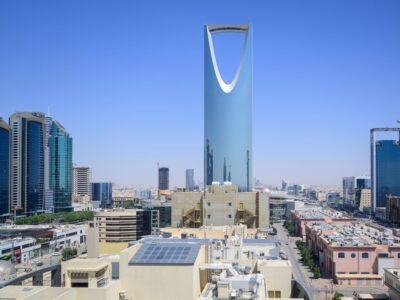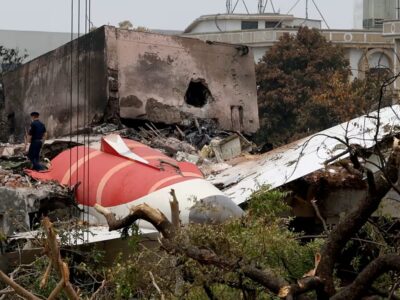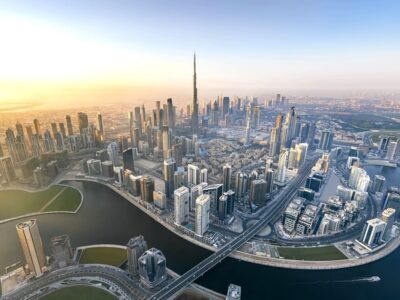“The underlying principle is that we have assets and the core assets we have, are the people driving the business,” says Andrew Furlong, CEO of Compass CAMEA (central Asia, the Middle East and Africa).
This cool, calm and collected CEO has many ambitions for the company, but one that stands out during the interview is his passion for people, his employees and his commitment to nationalisation.
“Nationalisation is something we embrace. We’re not trying to resist it, we’re trying to understand what the dynamics are, how we can best serve them and then how we get into a position where people can start to take over some of those ex-pat roles. In Compass, we’re seeing the ex-pat roles dwindling in number,” he reveals.
Last month, facilities management Middle East reported on a drive towards Emiratisation within the FM sector.
However, it was and still is apparent that this drive needs to be supported by focused training – not just for management but also for every employee.
“We’re really doing our utmost to make sure the people issues are properly supported and training and development is absolutely fundamental.
“We have opened a couple of training centres in the region and we’ve got a big one due to be opened in February in Abu Dhabi. We’ve joint ventured with ADNH Compass, which has been very successful. It has brought the local and the global market together to achieve harmony between the two,” explains Furlong.
He says the training schools have been designed to do two things. One – give employees the chance to progress into other roles and high positions. Two – try and use training as a way of retaining staff, something many companies have difficulty doing.
“We need to look at what we can do to retain staff and offering a good training package that will accommodate them and encourage them to stay in Dubai is an incentive. I’d imagine turnover is a massive problem for every business in Dubai.
“We’ve got a fantastic training centre in Kazakhstan that has been running for about 18 months and we’ve seen some great success.
“I think training is going to be a real corner stone and we’ve got to be really, really serious about it. We can’t just use it as a cliché and say you will be trained, it’s got to be very, very holistic. And we’re starting to take that to an additional level now.
“Quite often training just applies to the top 5% of an organisation, but we’re interested in every employees development,” explains Furlong.
The next few years are set to be a trying time in the recruitment sector with talk of current recruitment pools drying up and the demand for staff far outweighing supply.
The rate at which projects are being announced and completed is also a concern with more staff needed to construct new buildings and then others to manage them once complete.
Another issue FMs need to start seriously thinking about and acting upon is the mix of nationalities they employ.
“This is very much at the heart of a lot of discussions around the Middle East,” states Furlong. He adds that different nationalities are used to different ways and the secret is to support and encourage them. This can also be done through training.
“We’re really crossing cultural boundaries because different cultures accept different types of training.
Some are not used to team games so we have to find the right level for everyone. But we are trying to get people to realise that it’s ok to get involved in training and have a little bit of fun on the way,” he explains.
Training can be used for many different reasons. From teaching employees new skills to gaining feedback and from using the time as a platform to build relationships to communicating the company’s ambitions and current status.
“Training is a fantastic way of getting the workforce to understand where a company is going. The next step is for them to understand where the industry is going. Rather than being divorced and left out, I think it’s important for them to understand where the business is going, what the clients are doing and where they might be going,” says Furlong.
To him, keeping the lower level employees updated with company status and involved in what’s going on is just as important as keeping management informed.
The company currently employs around 400,000 staff across many different countries and as a result, have had to accommodate different cultures.
From labourer to senior manager, the company has a very multi-national workforce. “What we do focus on is having a very diverse team at a leadership and management level. The executive leadership team now is quite culturally diverse and I would see a lot of change in the next year or two on how we further that and get things like the gender mix slightly different as well as the cultural mix.
“At the operating level, quite often everything is done in a native language. We want to use the training centres to help bridge language barriers by offering English lessons as an option for people. We have to be careful culturally as we trade in many different countries.
“Currently, we have a healthy budget for translation services. It’s imperative if we are going to be a multi-cultural employer, we don’t want to have English as the do or die language,” he says.
“All of our operational procedures and safety procedures are distributed in native tongue. Currently, there are about 10 different languages out there and by the end of the year we’re targeting for 15 or 16. We have to bridge the gap and one day it would be nice if we weren’t divided by language.”
Health, safety and the environment (HSE)
An area of training that is constantly in the spotlight is health, safety and the environment. The focus is mainly on health and safety but environmental issues are slowly gaining more and more coverage.
Furlong thinks there are clear signs that HSE is evolving in Dubai. “If you go round to a lot of construction sites, it’s commonplace to see people in their PPE (protective personal equipment) and they’re wearing their protective vests and hard hats.
“The progress is good but there is still an opportunity there to leverage further and help everyone get to the point we need to get to. Dubai isn’t necessarily behind, it’s just evolving at such a pace that we’ve got to make sure companies like ours and the rest of the FM industry is serving the needs of Dubai and making sure we can all be well prepared,” he states.
Compass takes a very stringent stance on HSE and encourages it wherever possible. Furlong says that when they talk about HSE they are not just referring to a nice glossy manual that sits on a shelf. “We’re looking for something which is right in the middle of our operating platform that is going to drive safe operating practice.”
He wants the Middle East to be able to compete on an international level and feels in depth training to make people appreciate how operating in a safer environment can benefit them, is the way forward.
“Every service or process starts from somewhere and evolves over time. Our job is to make sure there’s a sustained effort because in fast moving markets like Dubai, there’s a lot of pressure on delivery and we’ve got to find ways in which the HSE procedure and process is not compromised, but can be made to be more dynamic to meet the needs of the market place.
“For businesses to be really sustainable in the coming years we’ve got to progress the health, safety and environment along with operating practices, as well as doing our day job very well.
“Operational performance and HSE have to be integrated into the normal day-to-day work and that’s what we’re driving for,” explains Furlong.
As the interview comes to a close, Furlong says that he thinks everybody should take a role in development and the only thing he’s not prepared to do is to stop developing and training. From a company perspective, it’s an area they are actually putting more money into.
Job Title:
CEO, Compass CAMEA.
Company:
Compass Group.
Core Services:
Support services/life support operations.
Number of staff:
30,000 CAMEA wide.
Largest contract in value:
AED 468 million a year.
Based in:
Dubai.
Your background:
MD, global head of FM for Global Financial Institution.
Previously managed extensive FM operations management on a global basis.
Most enjoyable part of job:
Finding the deal team to meet the clients needs.
Least enjoyable part of job:
Moving through airports!
Compass Group Central Asia, Middle East and Africa is part of Compass Group,the world’s largest support services company.
Based in offices in Dubai, it provides a range of services from catering to full integrated facilities management to remote site, oil and gas clients in such locations as Kazakhstan, Nigeria, Algeria, Angola and Azerbaijan, as well as bringing our expertise to corporate clients, the healthcare sector and governmental departments closer to home in the UAE, Qatar, Oman and Egypt.
